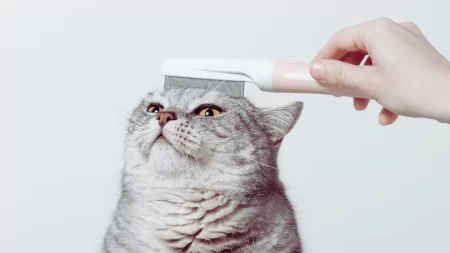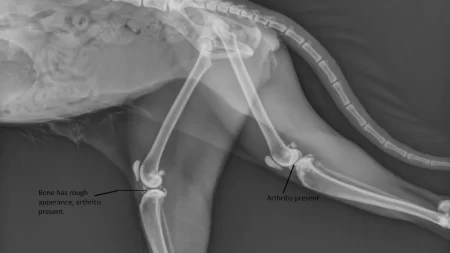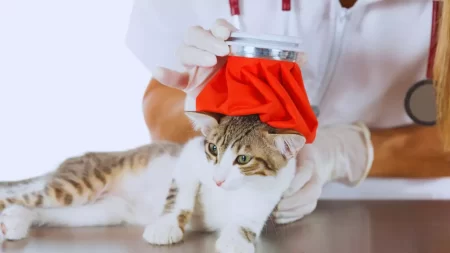If a cat’s urinary tract infection (UTI) goes untreated, it can lead to ongoing discomfort and potentially serious complications.
For male cats, waiting even a few hours can be fatal, while for female cats, it is recommended to feed them canned food only and seek veterinary attention within 24 hours.
UTIs in cats, if not treated, can result in complications such as bladder stones or a kidney infection called pyelonephritis.
Most cats will die within 72 hours if left untreated for a urinary tract infection (UTI).
Understanding Cat UTIs
What is a UTI in Cats?
A UTI is an infection that affects any part of the urinary system, such as the bladder, urethra, kidneys, or ureters. The most common type of UTI in cats is a lower urinary tract infection (LUTI), which involves the bladder and the urethra. A LUTI can also be caused by other factors, such as inflammation, stones, crystals, or tumors, and is sometimes referred to as feline lower urinary tract disease (FLUTD).
Symptoms of a UTI in Cats
Some of the signs that your cat may have a UTI include:
- Frequent or urgent urination
- Straining or difficulty urinating
- Blood in the urine
- Licking the genital area
- Urinating outside the litter box
- Vocalizing or showing signs of pain or discomfort
- Loss of appetite or weight
- Lethargy or depression
Causes of UTIs in cats
The most common cause of UTIs in cats is bacterial infection, which can occur when bacteria enter the urinary tract through the urethra. This can happen due to poor hygiene, stress, injury, or other factors that compromise the immune system. Some cats are more prone to UTIs than others, such as older cats, female cats, or cats with diabetes, kidney disease, or urinary tract abnormalities.
Diagnosing a UTI in Cats
If you suspect that your cat has a UTI, you should take them to the vet as soon as possible for a proper diagnosis and treatment. The vet will perform a physical examination and a urinalysis, which is a test that analyzes the urine for the presence of bacteria, blood, crystals, or other abnormalities. The vet may also perform a urine culture, which is a test that identifies the specific type of bacteria causing the infection and the best antibiotic to treat it. In some cases, the vet may also perform other tests, such as blood tests, x-rays, or ultrasound, to rule out or confirm other conditions that may affect the urinary tract.
Duration and Treatment of Cat UTIs
How long can a cat have a UTI?
The duration of a cat UTI depends on several factors, such as the severity of the infection, the underlying cause, the type of bacteria, and the response to treatment. A mild UTI may resolve within a few days with proper care and medication, while a severe or chronic UTI may last for weeks or months and require more aggressive treatment.
Can a UTI Go Away on its Own?
A UTI is unlikely to go away on its own without treatment and may worsen over time and lead to serious complications, such as kidney damage, bladder rupture, or sepsis. Therefore, it is important to seek veterinary attention as soon as you notice any symptoms of a UTI in your cat.
How Long Does a Cat UTI Last?
The length of treatment for a cat UTI depends on the type and dosage of medication prescribed by the vet, as well as the compliance and follow-up of the owner. Typically, a course of antibiotics lasts for 10 to 14 days but may vary depending on the case. It is essential to follow the vet’s instructions and give the medication for the entire duration, even if the symptoms improve or disappear, to ensure that the infection is completely cleared and prevent recurrence.
Treatment Options for Cat UTIs
The main treatment for cat UTIs is antibiotics, which kill the bacteria causing the infection and relieve the symptoms. The vet will prescribe the most appropriate antibiotic for your cat based on the urine culture results and the health status of your cat. Some of the common antibiotics used for cat UTIs are amoxicillin, clavamox, cephalexin, or enrofloxacin.
In addition to antibiotics, the vet may also recommend other treatments or supportive care, such as:
- Pain relief or anti-inflammatory medication, such as buprenorphine or meloxicam, to reduce pain and inflammation
- Fluid therapy, such as subcutaneous or intravenous fluids, to hydrate and flush the urinary tract
- Dietary changes, such as wet food, prescription food, or supplements, to increase water intake, acidify the urine, or dissolve or prevent stones or crystals
- Surgery, in rare cases, to remove stones, tumors, or obstructions, or to correct urinary tract abnormalities
Preventing Cat UTIs
The best way to prevent cat UTIs is to keep your cat healthy and happy and to monitor their urinary habits and behavior. Some of the tips for preventing UTIs in cats are:
Managing Anxiety in Cats
Stress can weaken the immune system and make your cat more susceptible to UTIs. You can reduce stress in your cat by providing a calm and comfortable environment, enriching their daily routine with toys and play, and avoiding sudden changes or conflicts with other pets or people.
Litter Training
You should provide your cat with a clean and accessible litter box, and encourage them to use it regularly. You should also scoop the litter box daily, change the litter, and wash the box weekly, to prevent bacterial growth and contamination. You should avoid using scented or dusty litter, which may irritate the urinary tract or cause allergies.
Tips for Preventing UTIs
You should also make sure that your cat has access to fresh and clean water at all times, and encourage them to drink more by providing multiple water bowls, and fountains, or adding water to their food. You should also groom your cat regularly, especially around the genital area, to prevent dirt and bacteria from entering the urinary tract. You should also avoid overfeeding your cat or giving them human food, which may cause obesity, diabetes, or urinary tract problems.
Seeking Help for Your Cat
When To Consult A Vet
You should consult a vet as soon as you notice any signs of a UTI in your cat, such as difficulty or pain urinating, blood in the urine, or urinating outside the litter box. You should also seek emergency care if your cat shows signs of a urinary blockage, such as straining without producing urine, vomiting, or collapse, which is a life-threatening condition that requires immediate attention.
Recovery And Management
The recovery and management of your cat after a UTI depends on the severity and the cause of the infection, as well as the treatment and follow-up. You should follow the vet’s instructions give the medication as prescribed, and monitor your cat’s urinary habits and behavior for any changes or improvement. You should also bring your cat back to the vet for a recheck or a urine culture, to confirm that the infection is gone and prevent recurrence.
Cost And Potential Complications
The cost of treating a cat UTI varies depending on the diagnosis, the treatment, and the location. The average cost of a urinalysis is $25 to $50, while the average cost of a urine culture is $100 to $200. The average cost of antibiotics is $10 to $30, while the average cost of pain relief or anti-inflammatory medication is $15 to $40. The average cost of fluid therapy is $25 to $75, while the average cost of dietary changes is $20 to $50. The average cost of surgery is $500 to $1,500, depending on the complexity and the type of surgery.
The potential complications of a cat UTI include kidney damage, bladder rupture, or sepsis, which can be fatal if not treated promptly. The potential complications of surgery include infection, bleeding, or anesthesia risks, which can be minimized by following the vet’s instructions and providing proper care and monitoring.







